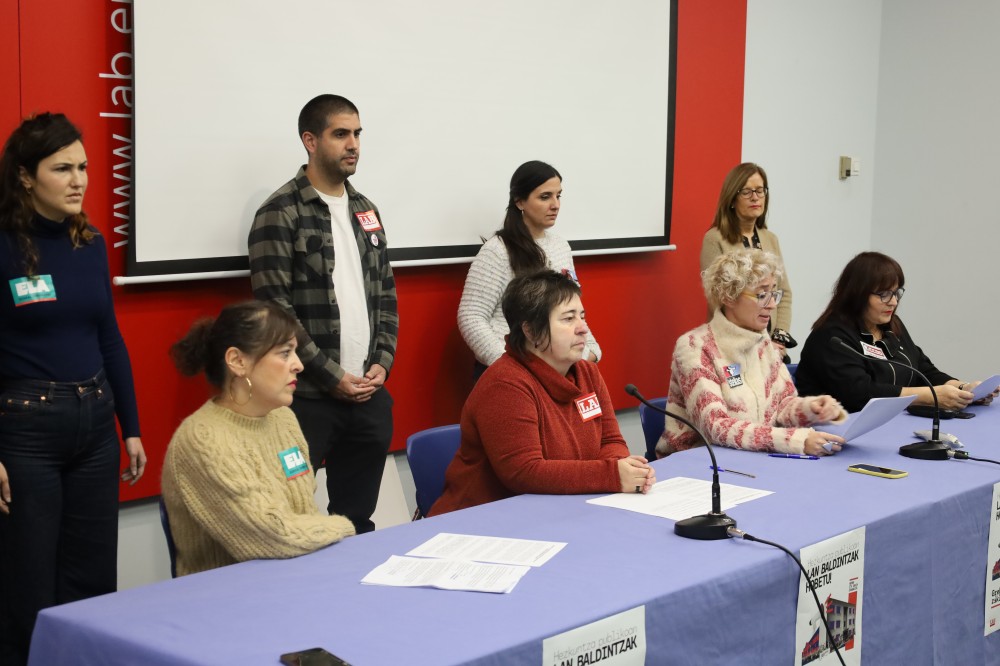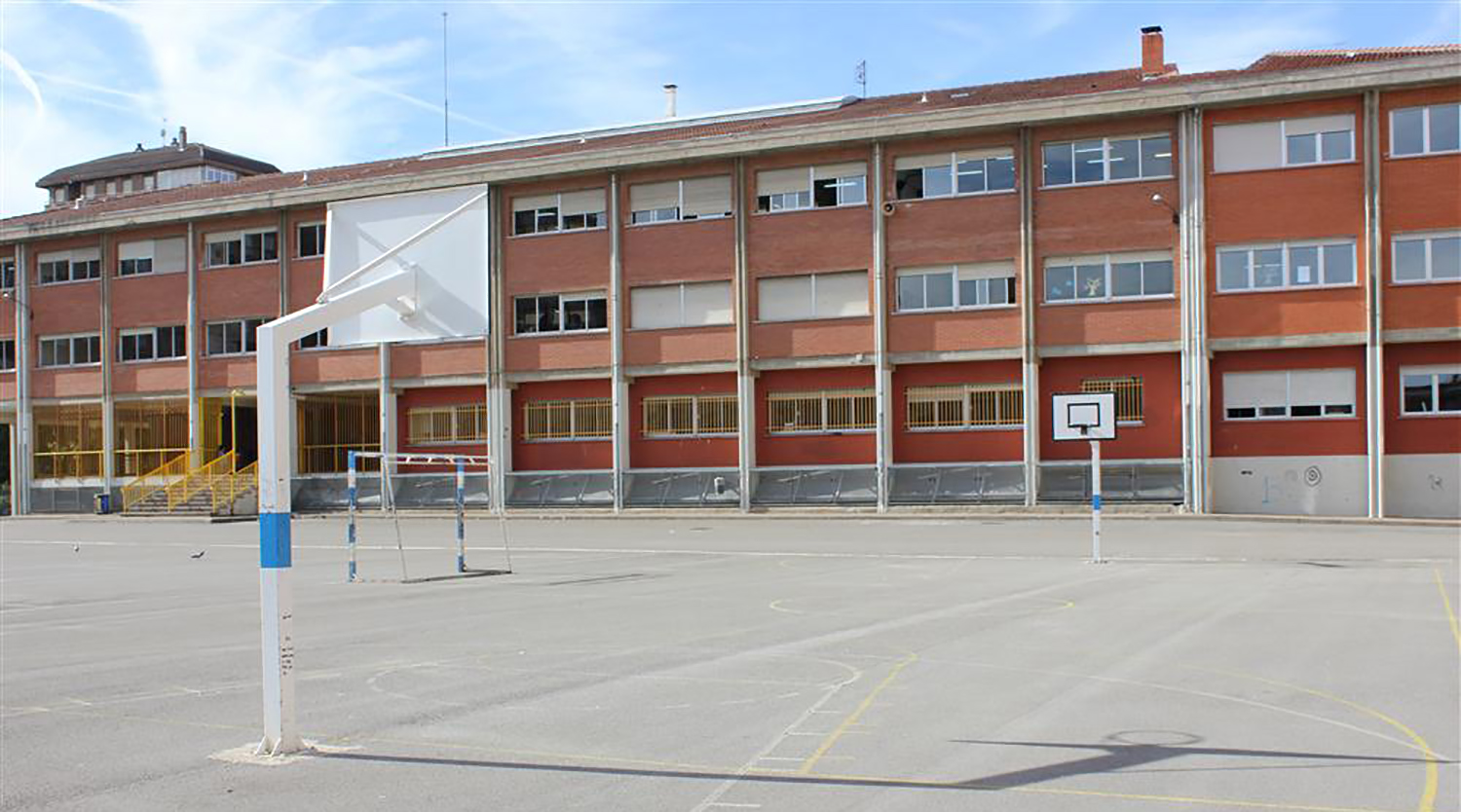Questions, losses and pleasures
- Four men aged between 59 and 85 have gathered around the table on the aging of the body and its influence on the understanding and practice of sexuality and masculinity. “What I have hardly thought or spoken about, I don’t know if I can provide anything,” was the initial response of the four to receive the proposal for a colloquium. Hence the first observation: we are not talking about these issues, if the contribution is simply to speak. The ways of living the decay of the body, the damages and benefits of not being able to fulfill the mandates of virility, the physical evolution of the penis and its consequences on perrilcentrism... The colloquium has gone as long as it is too short.
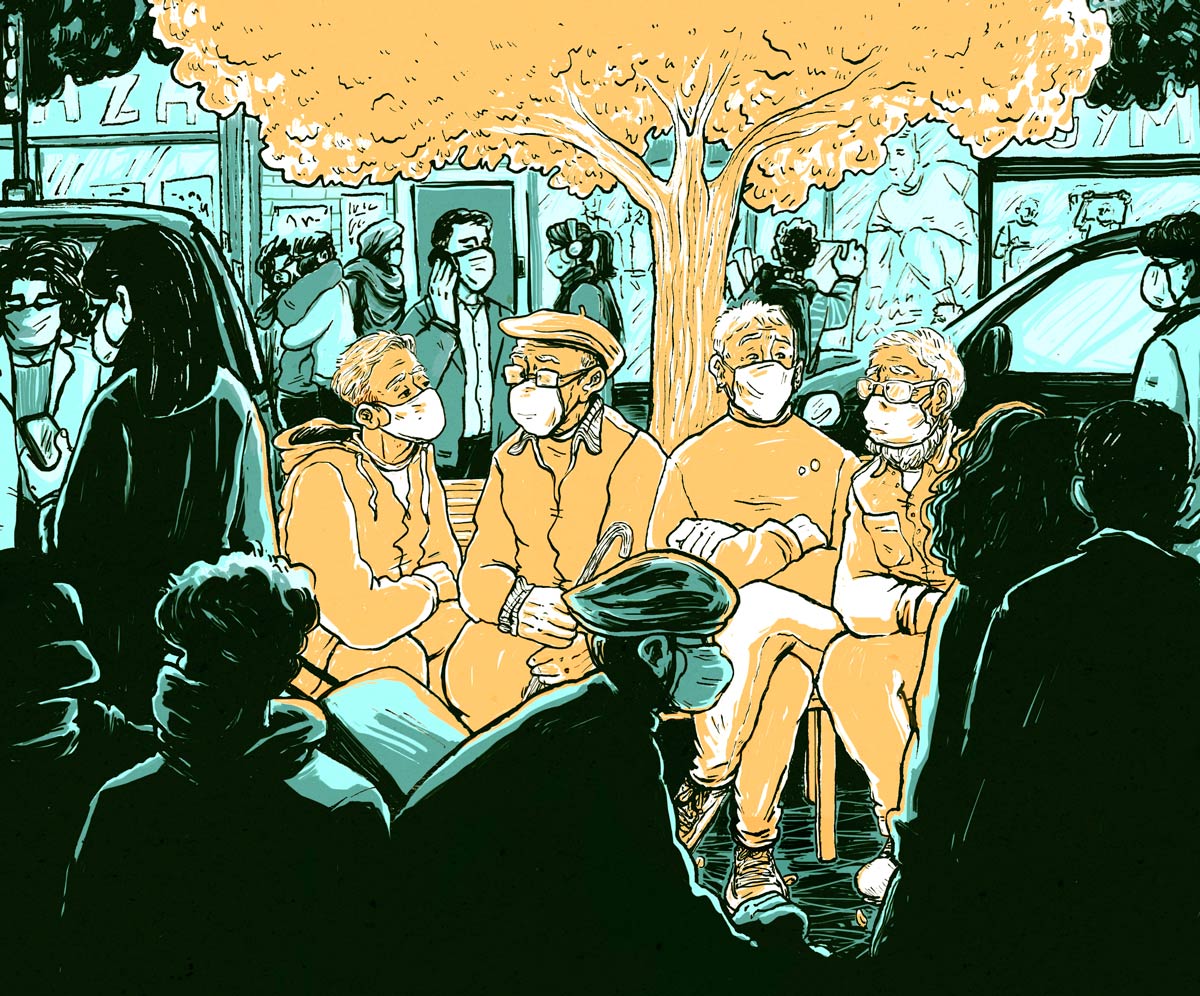
How many bodies, mind, mind, mind and age, different experiences of aging, sexuality and masculinity. It does not immerse itself in these pages in order to find, therefore, an example of no one; in any case, the following lines can be used to question the hegemonic models. Jokin turns 71 this year (all the report names have been invented). It has linked the awareness of aging mainly to the body and employment: “I was a professor, I was always standing, moving, and I noticed in recent years, for example, that I had to sit more.” But it has also associated old age with the “head”, with a different fatigue than physics, in order to extinguish some illusions: “At one time I thought we were going to dump everything, then you realize that your contribution has been small... if I have not fed the opposite of what I wanted to achieve,” he says, drawing an ironic smile.
Javier has done 85 with the beginning of the year. “My hair has fallen, I need glasses to see me, I have gone to a meeting and, to listen to Christ, I have partly lost my nose.” It describes its aging as a process of loss of intellectual and physical capacities. “I feel I had no limits to do what I wanted in the past,” he says, listing long journeys, high peaks, dense readings or writings, moments of intermittent loneliness sought. “Today I am not able.” That time when Javier did “what he wanted” is not linked to youth, some of the examples he has given are those that have been made around the age of Kepa and Luis.
Pedro is 61 years old, his words remind us that the evolution of all bodies does not have to be the same: “I find it hard to talk about the experience of aging, because in the last 20 years I have felt physically better than in previous times.” As a young man, he took a very “messy” life, with heavy drug use, until it severely affected the mental body, but managed to overcome the situation around the age of 30. “My hair goes blushing, yes, wrinkles appear, I have less resistance... I know I’m older, but I don’t physically notice it so much.”
Luis is 59 years old, doesn't feel physically worse than 10 years ago. “Although it is true that then I left the pediment.” Except as far as sex is concerned, which we are going to discuss later on, the greatest change is being experienced in the realm of militancy. Accustomed to having greater prominence, in recent years he has decided to move to the “second line” in the spaces and struggles he shares with young people. It is a political decision, not a physical one. He believes that thanks to the experience of age he has more ability than ever to conduct political studies, but also that the role he plays in some groups is detrimental at the same time.
"With aging I feel I've taken a burden, I don't have to compete with anyone."
The adventures and misadventures of aging
The maintenance of youth is, in general, one of the most important contemporary mandates in our society; the hegemonic model of masculinity demands strong and active bodies has been interiorized by Jokin in his day. “Youth is recognized and I feared Christ will lose it. ‘I’m not so old’ said I lived a conflict between mind and body.” He also felt the threat of exclusion: “When you send, they exclude you from society, also in the political sphere. Militancy, employment... What place do we have here the helmets?” In contrast to this fear of what might come, as they arrived, “limits are being seen and adapted” normally. He continues to do the same thing he did before, “but at another pace.”
The experience of Luis has similarities. He says he looked at 60 from the distance in a different way, but as they get closer, he lives in a normal way. “When I was 10 years old, it’s like when I thought, “Bua, being 20 years old has to be terrible!” Then the 20 came and, well, they weren't for that much." Kepa and Jokin listen to the mental movement, connecting with the experience. Aging, except for exceptions, is not a jump from one situation to another, but a slow process that takes place in daily life. Luis also celebrates it: “Is this 60 years old? It's a txollo! It’s also true that the current 60’s are not from the past.”
The pressure is not inside, but Luis has felt it in the crew to reject the theme of speech that he brings out from time to time: “I’m told not to talk about aging, ‘that’s to accept that you’re old.’ I think it's a fear. We have started to lower the slope, nothing happens, but we have to be mindful.”
Luis points out the danger of distorted self-perception, awakening the laughter of his interlocutors: “I have known that a person is of my age and I have thought many times, kicked, am I like that? I still lie ...”. It says that the external gaze helps to adjust this perception. Xabier associates the deformation of self-perception with vanity, grasping the thread thrown by Luis. Many times he receives some admiration for being “very good” to be 85 years old, and in those cases he says “I forget who I am, I think I am more than I am. Then I realize it’s a matter of veneer painting.” Again, generalized laughter.

As Javier gets older, he loses security. He is more likely to stay at home or flee from loneliness punctual than he was previously persecuted, as his discomfort and boredom prevail. Claims leave a deeper footprint. A few years ago he lost consciousness on two or three occasions, for months the doctors did not find the cause and until it was clarified he had to stay at home or “risk leaving”. He decided to risk himself, it was for good, “but the experience marked me.”
Death is Peter's main concern. “I think more and more about death.” But not the anguish, despite the sudden death of his best friends in recent years; on the contrary: “If we go any day we have to take advantage of it.” Luis is also aware of the possibility of death and does not frighten him: “It doesn’t matter.” Javier was worried about dying in a time, not today, but the way to kill. The possibility of making a living will or the recent euthanasia law that they have passed in the Spanish Congress has helped drive away some of their ghosts.
Benefits of softening
Hegemonic masculinity is competitive, especially among men. This competitiveness is complemented by the general mandate of “being able” physically and mentally and, above all, by the need to demonstrate it constantly. What do you do with all this as capacities are lost or diminished? Try to maintain your position in the pyramid of masculinity by forcing yourself, pulling out more breast or exacting impossibility and frustration to others? Suffer in silence and in solitude? Or turn the loss into liberation, taking advantage of the burdens and wounds of competition?
“I’ve felt that competition, especially in youth we had a lot of competition,” says Jokin. It has not been a process without thorns, but the loss of competitiveness has brought serenity: “With aging I feel I’ve taken a burden, I don’t have to compete with anyone.” Xabier has followed the same path: “It ceases to be great and you have the freedom to explain it not according to political theory, but from within, from what you feel. It’s an advantage, but it’s a sign that our virility has been broken.” Javier believes he has gained the ability to be and listen to people, especially women. “And crying [has been shaken and stopped before continuing], when I feel understood or accepted.”
Kepa and Luis state that they do not feel the pressure of the hegemonic model of masculinity and competitiveness: Luis accuses Kepa of being lucky enough to live alongside feminist women from a very early age, their Marican environment. If you notice a higher tendency to get excited as you get older: “Even with things that shouldn’t get me excited, like a silly movie,” says Luis; “I too,” Kepak laughs. Luis was afraid to get more angry with his age and says the opposite is happening to him. “My friends also tell me I’m quieter, I don’t know if it’s a testosterone
issue.” “So you say that age softens one way or another?” he asks the diners. The generalized yes suggests new questions: What if, instead of softening ourselves with age, we didn't remember ourselves before? How many benefits can it bring to men? And, above all, how many benefits to women* and the world? However, there is no time to continue pulling that thread. We must grab a new snout of Mataza.
"Now I have more sexuality with myself, I've gone to masturbation and pornography."
Sexuality
“In that it has brought me age a great change,” says Luis, explaining what he is living in the last five or six years: “A time has come when the bodies I like are not my age’s own. I'm not attractive to 10, 15, 20 years younger than me, and vice versa, those I like don't attract me. At the age of 20, I liked the age of 40, also now.” She has always had open heterosexual relationships, which have lasted for many years. She tends to have sex with people she has known before, rarely “night turtles.” If a younger woman is interested in her, another concern arises: “What can a ‘young man’ expect from me? I start thinking and I'm scared. Sure... buf, I don't want that." Luis raises a wall that prevents him from behaving naturally when seeking relationships. It has not long created a new sexual relationship and has lost some old people for different reasons. “Decreasing in size until they disappear lately. Now I have more sexuality with myself, I've gone to masturbation and pornography."
Kepa came out of the closet at the age of 30. If until then she had suffered the “pressure of women’s taste,” she has enjoyed sexuality more between the ages of 40 and 60. She has been living with her partner for more than twenty years, but she has had many sexual intercourse outside her, often using Internet dating apps. “Day-to-day relationships are great for me, even without knowing who the guy is.” When I was young, I only liked adult men. “Now I don’t differentiate age from liking. I can enjoy the 20 years younger and the older than me.” In the last two or three years he has had less desire in general, he feels lazy, but more than with age he is associated with other life changes. “I think if I let myself go back to golfism.” Luis interrupts you: “Or not. I thought the same thing about myself, but listening to you, the same age has something to do with it.” And Peter takes it again: “But my partner is older than me and has more desire than me.”
In recent days, Xabier has been nervous about the need to talk about sexuality for this report. It is defined as monogamous heterosexual, “although in his day he was not so monogamous, and I appreciate those moments”. Like thousands of men in the world and in the Basque Country, he spent years at the Seminary and has equated himself to an eunuko at that time: “I remember thinking of myself, “dying before sinning,” and the main sin was to relate to women.” At the time of his departure from the Seminary he had sex for the first time with a person, but the mark of the Church and the priests is still fresh. “I was unable to enjoy, I was unable to orgasm for six months, until I broke it.”
Javier continues to maintain a relationship of couple of decades. Within a few years of her retirement with 64, she begins with prostate problems that physically affected her penis. “I didn’t get the same. From time to time, changing posture, making it calmer...”. Through the prostate, the doctor prescribed Viagra, as without it he could not be tempted by the penis. “Take him home and couples, “Why that? Leave it.’ Joder, then...” The passage reaffirmed the feeling he has always had, that he enjoyed more sex than the couple. The reflection followed: “The cleft in wages, the cleft in retirement… and also in bed, some enjoy a lot and others a few.” He didn't think the gap was that big, says Orgasm Arrakala citing Paola Damonti, the booklet's author. Surprised that 80% of the women found that they had no orgasm with intercourse, Argia did an interview with the author in Spanish and sent her to her older friends.
"Until the age of 60, every day, Luis's parents made intercourse. Her mother doesn't know what orgasm is."
“For a long time I began to experience a little anguish, fear of not complying with it, a ghost: “Will I fulfill what is expected of me?” says Jokin. He says that it is to fulfill what “is expected” of men, and “to comply” is a very concrete thing: “Make intercourse, keep the penis upright and make your partner enjoy.” Aging has alleviated the burden, both with the competitiveness of men and with sexual ‘compliance’. “If you gradually change the practices, you learn that it is possible to have another type of relationship, apart from perrilcentrism, caresses, another body language, and that it is also possible to reach satisfaction. Old age has given me that quiet point, I don’t have to comply with the requirement.” Returning to what Javier said, he clarifies that the men of his age who have not gone through the seminary have also suffered great repression. For example, he shared a room with the girls for the first time in college. “Suddenly with the girls and you don’t know where to enter, fear...”

Beyond perrilcentrism
Every day, until the age of 60, Luis's parents made intercourse. Her mother doesn't know what orgasm is. When asked why this daily obligation was carried out, the mother responded to her son: “I needed it.” Intercourse is the center of heteropatriarchal sexual intercourse, and the center is the penis, which is also the measure of virility. What happens to the temptation of the penis and its centrality in aging?
Today Javier has no erection or desire for sex. “I have no frustration for not having sex and it gives me peace of mind to think that the couple doesn’t need it either.” On the contrary, the libido or desire of Luis, Jokin and Kepa has not brought them down. It is, however, a desire that is increasingly part of the head and that is materializing in the body with another intensity.
Luis began to feel the change starting at age 50 or so: the erection has less and weaker, “at the time of having sex, let’s say he walks in the street”; he needs more time to reach orgasm; “I live the positions or situations that put me on fire in another way”. He summarizes with humor his reaction to a body that has triggered desire: “Mental erection yes, but not physical.”
Jokin speaks the same way. By the age of 55, he began to notice the decrease in erections. “I still have them, especially in the morning, but I find it increasingly difficult and it is not the same thing. In the head the desire is still active, but I see physically that I cannot,” he says with the current 71.
"Of course they don't tempt me like before, but I haven't had any concerns, I do great pleasure with other parts of the body."
Pedro achieves orgasm even though the erection is less intense. He has devoted little thought to the subject and does not seem casual: “Of course they don’t tempt me like before, but I haven’t been worried, I do great pleasure with other parts of the body.” Do not experience pressure from erect penis and masculinity. “With my partner we don’t have the competence to see who is the most male or we have to prove anything. And in extra sex, we have very defined and consensual what everyone wants.” Of the practices that you want and agree, no one is among the priorities of penetration. There is a very masculinized homosexuality model that pays homage to the bodies worked in the gym, fully sexualized and with the penis in the center. “Yes, of course, but it’s not mine or my environment.”
Penile decline has brought other changes to our interlocutors. Javier says that friendship with aging is physically different with women: “At the end of these years, we allowed ourselves to be more physically affective. Unlike before, I believe.” He experiences change as a gesture of confidence that he appreciates. We have read to Jokin how he has developed a new body language beyond perrilcentrism as he began the difficulties to “please”.
Javier also has the feeling that, by decreasing sexual relations, he increased caresses or developed a greater tendency to express love. “Why is the other missing? Why do you want to fill that gap? I don’t know,” he put the question. And Luis captures it in the air, suspecting that: “I think I’d cheat myself saying that “I’ve found that sex can be different.” The pleasure we got together we didn't get it now, we're not so appealing to each other, things change. That's why caresses, love can gain weight... It can change that balance, but not because we've learned nothing."
Living better to the detriment of no one
There is an atmosphere to keep talking on the table, but the order of return forces us to stand in their people. The same initial thought closes the programme: we are not talking about these things, and we should do so. Men should share more of the experiences related to masculinity, aging and sexuality, putting the three and each in touch separately, questioning our minds and our forms. It shares situations, fears, doubts, joys and ailments, pride and shame, theories and practices. Reduce sufferings and increase pleasures; not measure sexuality, masculinity and the world based on the penis; soften us to live better in ourselves, without building that well-being on anyone's back.
The poor management of the Valencian cold drop has led to a change in adverse meteorological alerts, as shown in the first season of "winter". Faced with the threat of rivers overflowing in Hego Euskal Herria, the indications for protection came along several paths, since no... [+]
Irene Coulon’s talk about sleeping beauty and the image of incineration has been the main theme of this year’s Feministaldia. He has torn apart the cultural ideas of sleep, making it clear that we also have masculinized sleep. Many of the (cultural) lessons of sleep are... [+]
I have recently had the opportunity to see the latest work by Pierre Carles, a committed documentary author. Under the name of Guérilla des FARC, l'avenir a une histoire (FARC guerrilla, the future has history), proposes a renewed account of the armed conflict that has lasted... [+]

















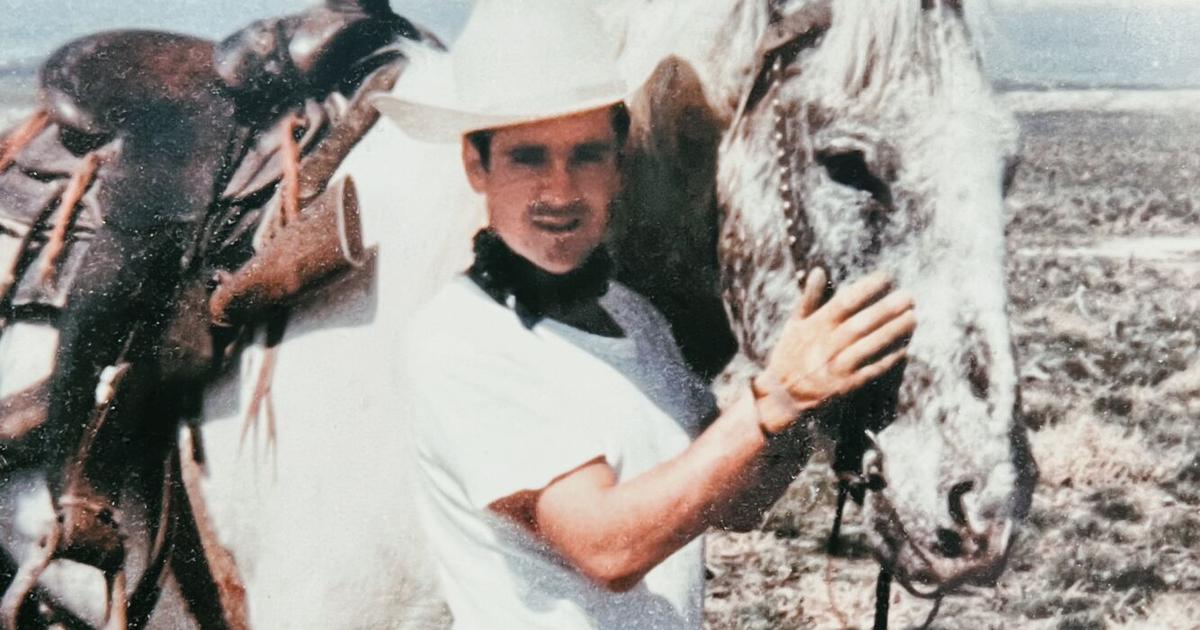
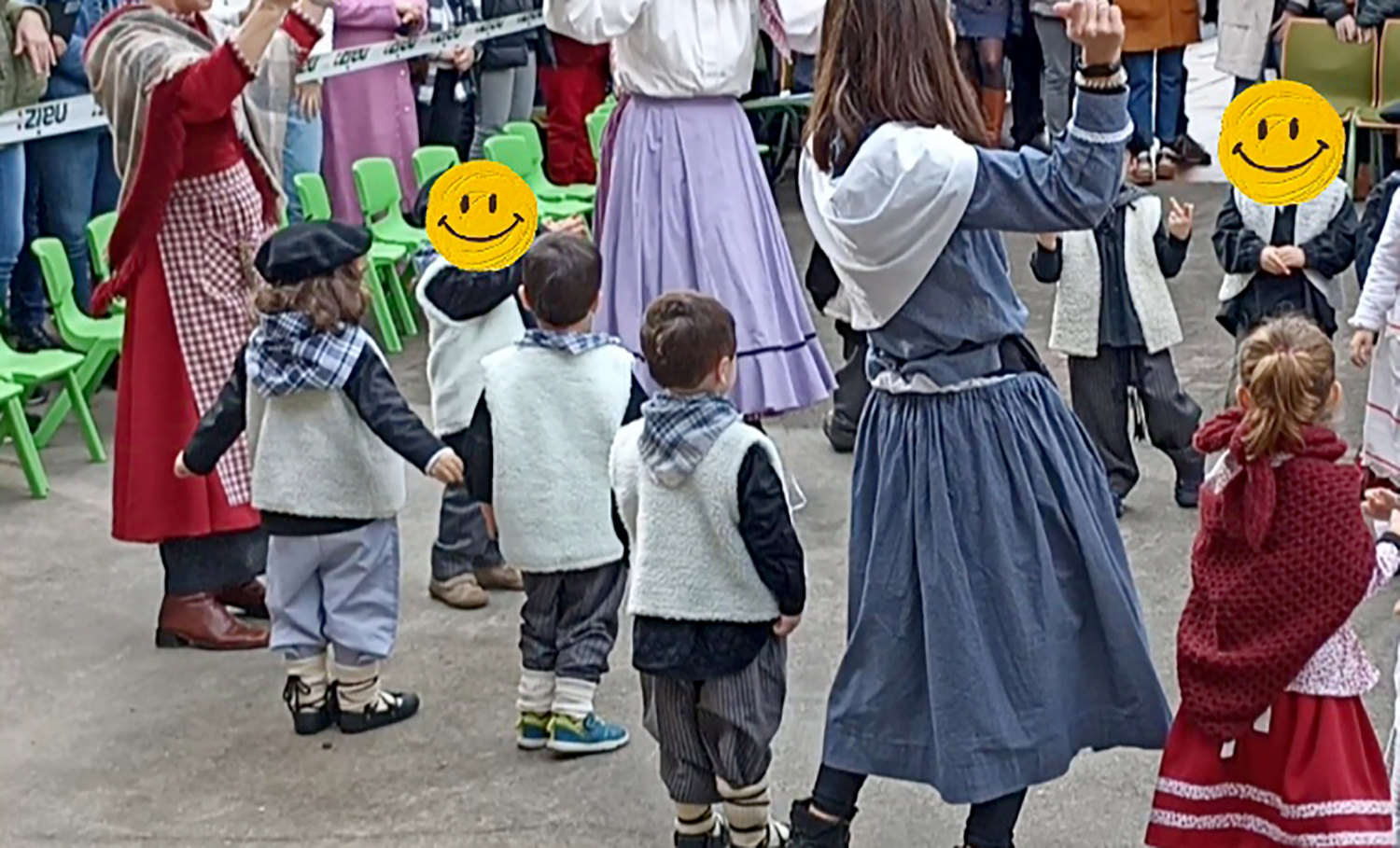
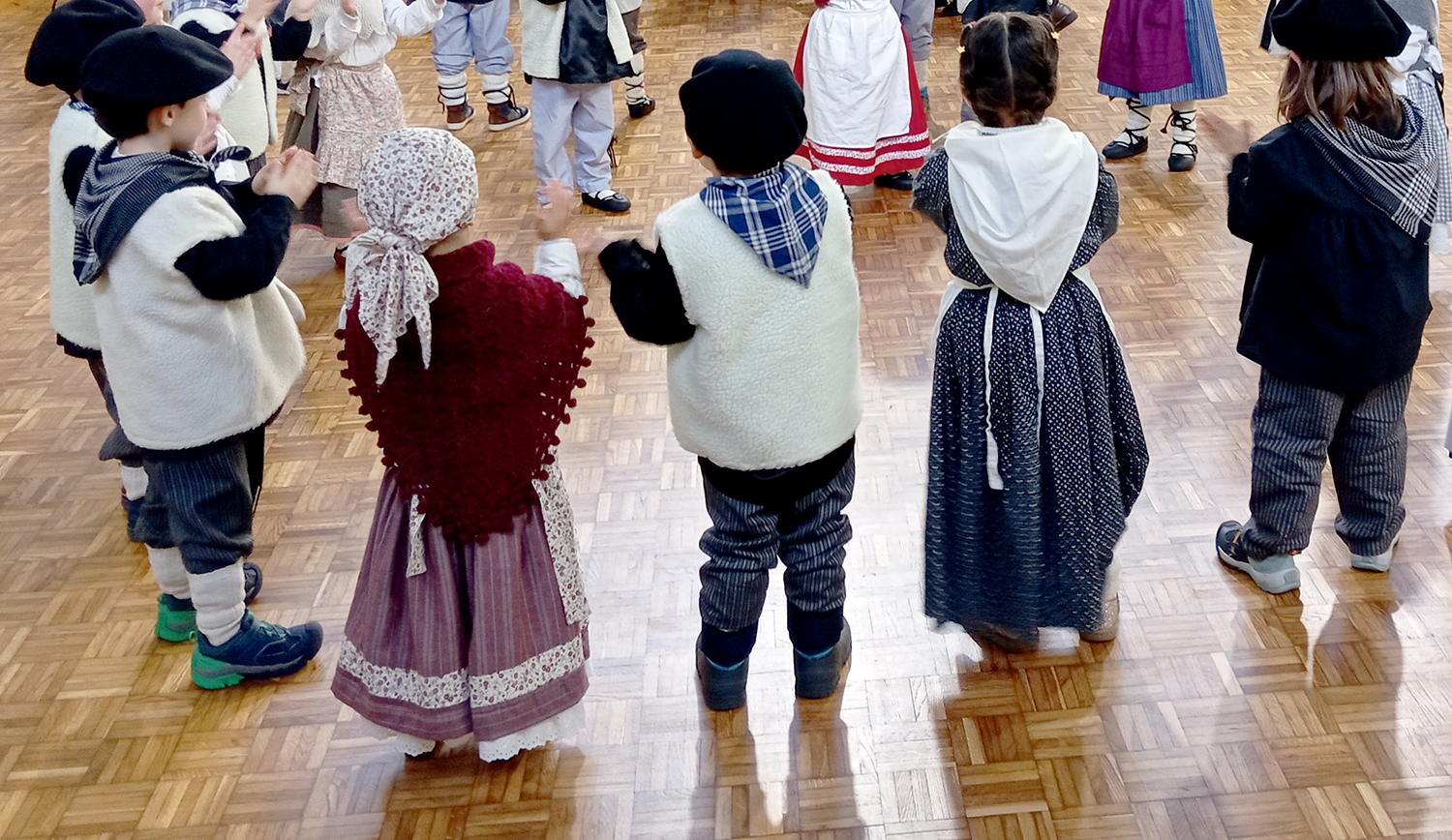
.jpg)

.jpg)

